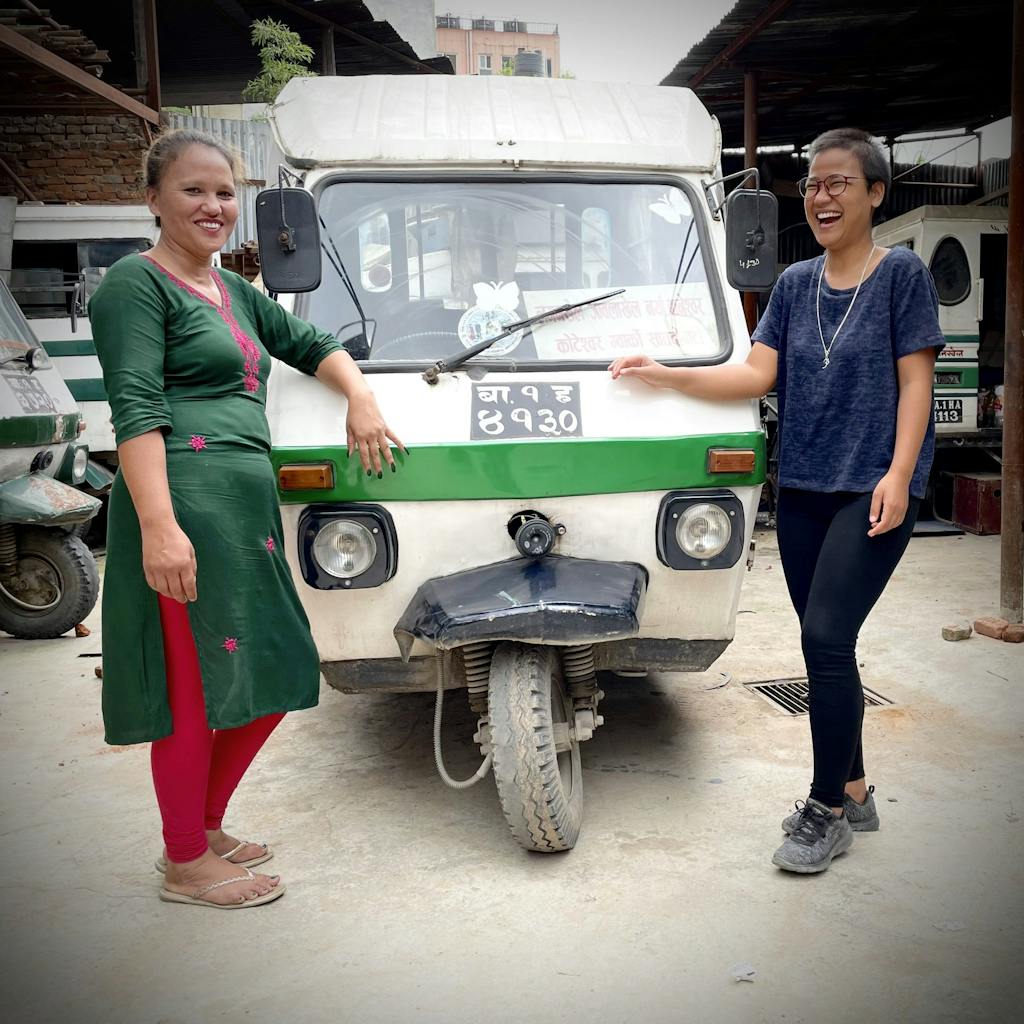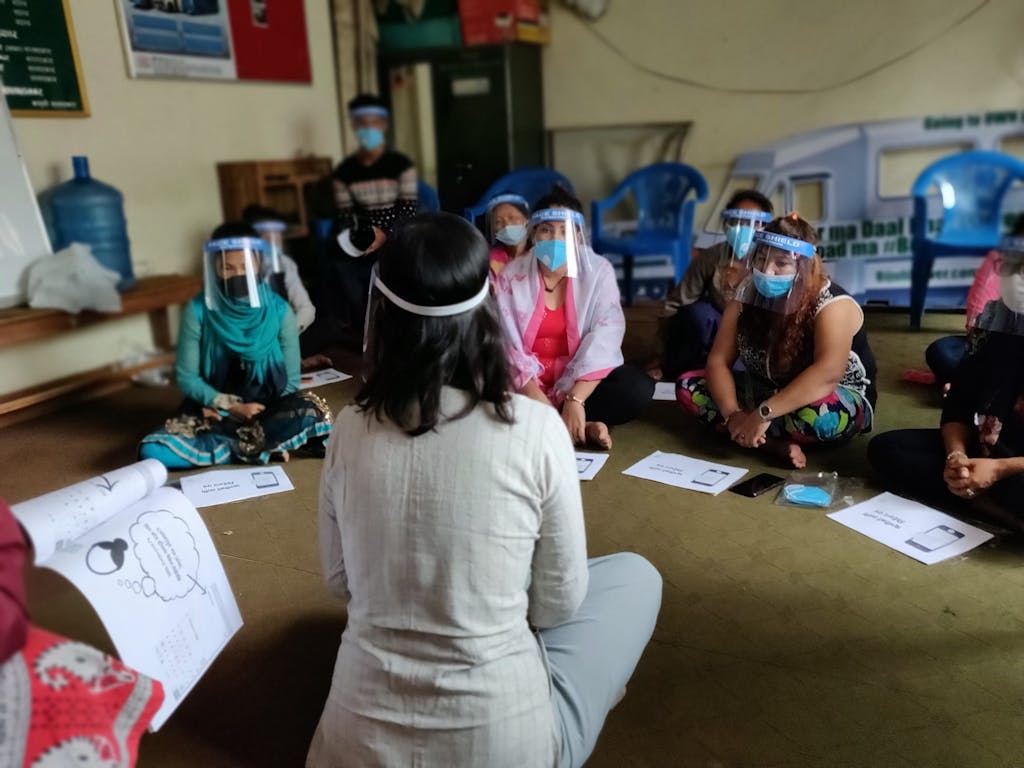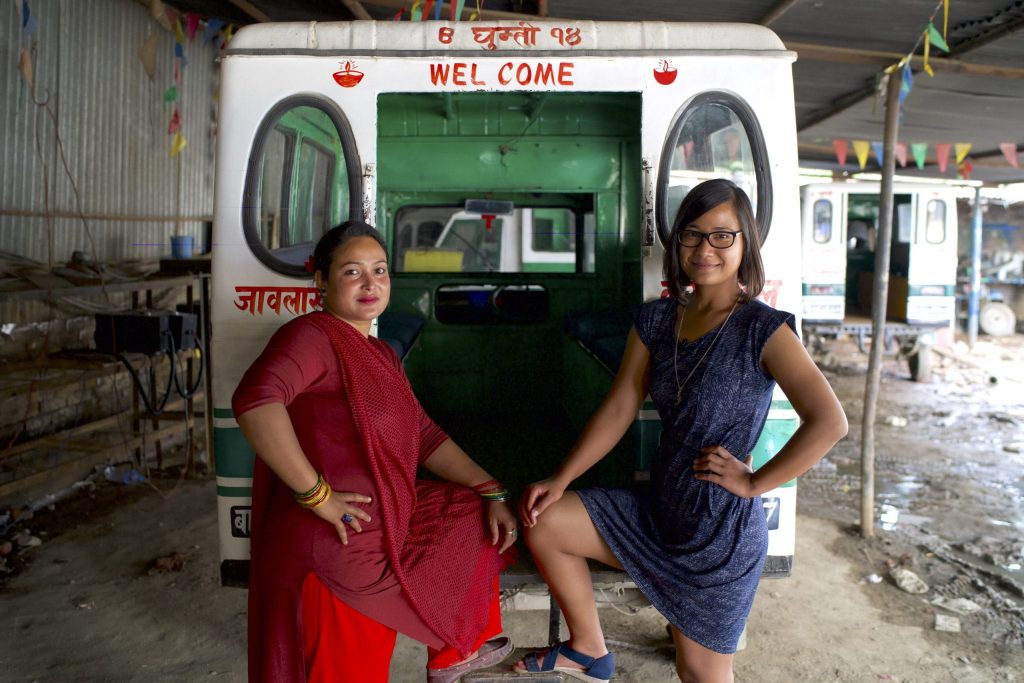
Sachita Tiruwa and Sonika Manandhar on the Safa tempo storage. picture: Todd Brown / Samah Tokmachi
Sonika Manandhar is an entrepreneur and youthful local climate Advocate whose startup is tackling Nepal’s persistent air air pollution drawback, whereas marshaling a squad of local climate ninjas and supporting women’s monetary independence.
When she was 5 years previous, Sonika Manandhar would accompany her father, a minibus driver in Kathmandu, Nepal, on his Saturday routes. Seeing how his livelihood thrived with the assist of a authorities mortgage taught her an very important life lesson early on.
“I noticed the trajectory of my household, from microentrepreneurship to now proudly owning shares in large buses,” she says. “all of it comes proper down to finance: with it, you most likely can actually develop a enterprise and the financial standing of your liked ones, however with out it, there may even be nothing.”
Pioneering inexperienced autos
it is a lesson Sonika, now 31, has taken to coronary heart as a consequence of the co-founder and chief know-how officer of Aloi, a fintech start-up that connects feminine electrical bus drivers to low-curiosity financing. inside the Nineteen Nineties, throughout the time that Sonika was driving round collectively with her father, Kathmandu grew to become an early adopter of electrical autos — usually recognized as “safa tempo” — introducing a fleet of about seven-hundred models, which was then the most vital quantity of battery-powered autos of any public transport sector on the planet. not like the the rest of public transportation in Nepal, most of these autos had been being operated by feminine microentrepreneurs.
“I name these women ‘local climate ninjas,’” laughs Sonika. “they’re driving these electrical minibuses with out even figuring out that they are serving to deal with such a large subject as local climate change.”

Debi Shrestha and Sonika Manandhar all by means of World EV day. picture: Aloi
The safa tempo had been a boon to Kathmandu, lowering carbon emissions by 1000’s of kilograms a day in thought-about one of many polluted cities on the planet. nonetheless, the electrical buses, which provided a singular decision to the air pollution problem, had been a brief-lived promise. They run on lithium ion batteries that value virtually $10,000, a prohibitive impediment for the feminine drivers who had been unable to entry funding from formal institutions. as a consequence of of this, a lot of the buses at the second are sitting round in garages, rusting.
“These women have been working inside the sector for 20, 30 years, however they do not appear to be trusted with formal types of finance as a consequence of they’re working inside the informal sector,” says Sonika. “they will’t current lenders any credit rating historic previous, or digital footprint, or proof of earnings.”
Bridging the notion deficit
Enter Aloi. using her laptop laptop computer engineering background, Sonika and her staff bought here up with a system by which digital tokens assist bridge the notion hole between lenders and debtors. women would have the flexibility to buy microloans from institutions inside the form of these tokens, which is most seemingly accessed through SMS “from the smartest telephone to the dumbest telephone,” says Sonika, and in addition use them to buy items and companies from taking half distributors. in the meantime, monetary institutions are in a place to hint the place their funds are going and the form of impression they’re making. Sonika is proud that her staff has been in a place to barter fees of curiosity of 1.33% — a far cry from the crippling 20% fees that their clients had been accustomed to going by means of.

Sonika offering teaching on discover out how to make the most of tokens by means of the mobile telephone to women EV drivers. picture: Aloi
As a youthful woman, Sonika is aware of firsthand what it means to be the goal of mistrust. for event, when Aloi was started in 2019, she and her co-founder, Tiffany Tong — whom she met at an innovation problem in Silicon Valley, a spot that’s not most seemingly the most hospitable to women in tech — needed to work exhausting to steer these that their idea would have impression and that that they had the expertise to execute it. Now, Sonika brushes off these experiences and seems to the optimism of like-minded friends comparable to a consequence of the United Nations basis’s youthful local climate Advocates community, a platform of over 800 youthful people in further than one hundred international areas. The community connects youths engaged on local climate movement all by means of the world and supplies an space for them to alternate sources and discuss about what’s working — and by no means working — of their residence international areas.
“i truly needed to level out the world that youth truly know the subject, and that we simply don’t see it as an subject, however as a likelihood,” Sonika says. “Working in local climate movement may even be very tiring typically, each mentally and bodily, so it’s very important to embody your self with people who align collectively with your purpose and imaginative and prescient.”
TAKE movement
As humanity sits on the purpose of a local climate disaster, on a daily basis people are stepping up — discovering options and addressing the local climate disaster of their communities and international areas.
Our local climate Is Our Future, a United Nations basis initiative, highlights the work of these unrelenting advocates and activists who’re on the frontlines of the battle to defend our planet.
Stand with them.

